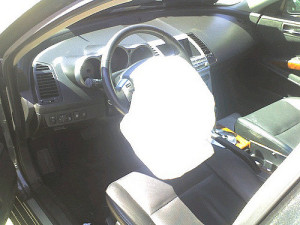Drug distributor McKesson Corporation will pay a $150 million fine.
Regulators have alleged that McKesson Corporation, a drug distributor, failed to report suspicious orders of painkillers that have been linked to the opioid addiction epidemic.
The company has agreed to pay a $150 million fine after they allegedly failed to detect and report suspicious orders of prescription pain pills, according to federal prosecutors. This has arguably led to the growing heroin crisis.
For example, more than 1.6 million orders for controlled substances were filled by McKesson in Colorado between June 2008 through May 2013. However, just 16 of them from a single customer as suspicious, the Justice Department said.
In a statement from the White House last summer, federal fears related to pain killer and opioid addictions were made clear:
“President [Obama] has made [it] clear that addressing this epidemic is a priority for his Administration. While Federal agencies have been using their authority to take every available action they can, Congress needs to take action on what is most urgently needed now – additional funding to make lifesaving treatment available to everyone who seeks it. The President has called for $1.1 billion in new funding to help Americans who want treatment get it wherever they live.”
Those addicted to opioid painkillers are most likely to form a heroin addiction according to the Centers for Disease and prevention.
McKesson, the nation’s largest drug distributor, was accused of failing to create an effective system to detect suspicious pharmacy orders. This was argued to be a violation of the Controlled Substances Act.
In 2008, McKesson agreed to a $13.25 million civil penalty for actions including failing to report suspicious sales of their drugs on “internet pharmacies.”
In a statement, McKesson said it settled “in the interest of moving beyond disagreements about whether McKesson was complying with the controlled substance regulations … and to instead focus on the company’s partnership with regulators and others to help stem the opioid epidemic in this country.”



